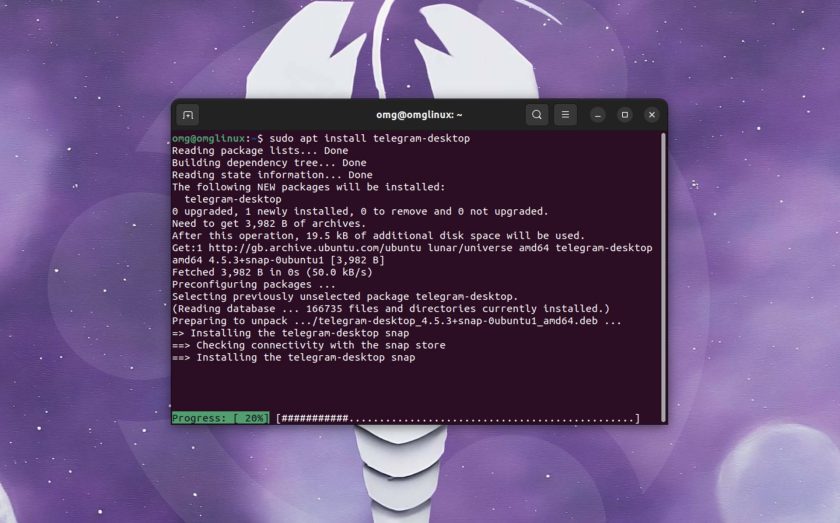If you run sudo apt install telegram-desktop in Ubuntu 23.04 it will install a Telegram Snap instead of the Debian package you might expect.
Ubuntu developers are currently debating whether to back-port the transitional package to earlier, stable versions of Ubuntu, such as the latest long-term support release.
But why are they doing this?
Existing Telegram Desktop app in Ubuntu described as ‘outdated & buggy’
Well, the existing telegram-desktop package in the Ubuntu repo is inherited from Debian. That build, while functional, is charitably described as being “outdated and buggy” by one developer. It’s also not maintained by Telegram themselves.
So, being frustrated with bug reports and support requests for an outdated build they don’t control, Telegram asked Ubuntu to make the change in 23.04.
This way its users get an official, continually-updated version of the popular messaging client without needing to “change” where they install it from.
Getting the Message

Snap is far from the Linux community’s favourite packaging format — and if you want a source for that claim? Just read the comments under any article about Snap on any website.
But the switch makes sense to me.
Telegram maintain the Telegram Desktop Snap (and yes, they continue to maintain binary builds of the Telegram desktop client for Linux too, lest anyone worry about being Snap-trapped). It makes sense for them, with regards to Ubuntu, to have users on a recent, supported build.
And tackling that at source with a transitional deb package is the simplest approach.
Ubuntu has experience doing this. A couple of “deb to snap” transition packages are already in use. If you run apt install firefox or apt install chromium-browser on a newer version of Ubuntu you get Snap builds (and if you remove Snap and then run the commands, it reinstalls Snap too.
I imagine most of Telegram’s avid Linux users already use the self-updating binary builds available to download from the Telegram website. Casual users Telegram are more likely to use whatever version is is the Ubuntu repos, but are also unlikely to care about the underlying packaging format being used.





